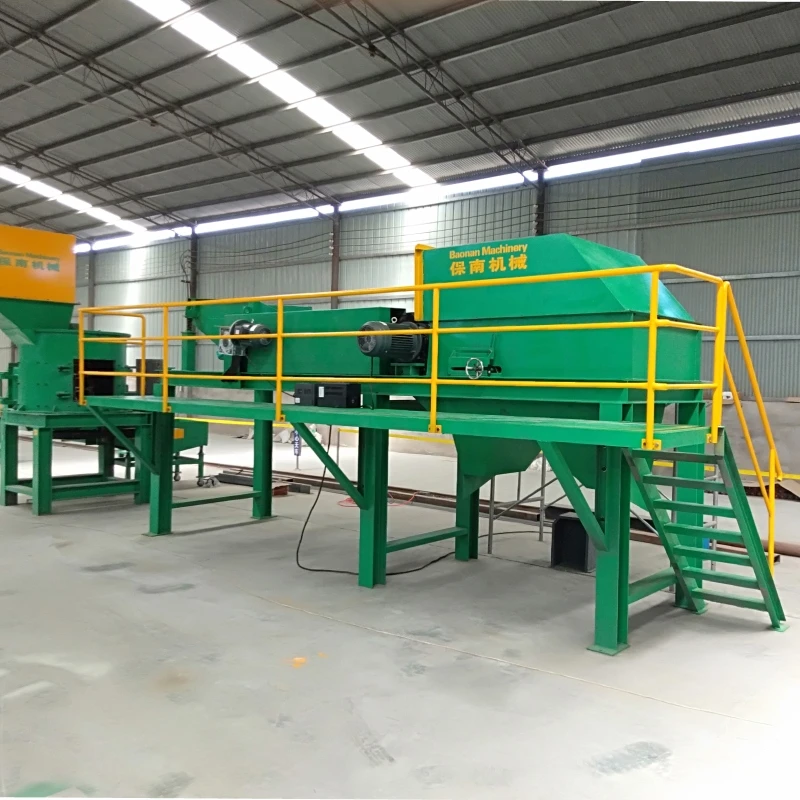

Lap . 15, 2024 06:53 Back to list
The Importance of Aluminium Shredding in Recycling
Aluminium is one of the most widely used metals in the world due to its lightweight, strength, and resistance to corrosion. From aircraft manufacturing to beverage cans, its applications are vast and varied. However, the increasing demand for aluminium has raised concerns about sustainable sourcing and waste management. One effective solution to address these issues is aluminium shredding, which plays a crucial role in the recycling process.
Aluminium shredding is the mechanical process of reducing aluminium waste into smaller pieces or shavings. This is typically achieved using industrial shredders that can easily handle large volumes of scrap aluminium. The process not only makes recycling more efficient but also allows for better separation of aluminium from other materials, thus maximizing the recovery rate. However, the importance of aluminium shredding extends beyond mere efficiency; it has significant environmental and economic implications.
Firstly, aluminium recycling through shredding has a profound positive impact on the environment. Recycling aluminium saves up to 95% of the energy required to produce new aluminium from raw bauxite ore. This substantial energy conservation is crucial in reducing greenhouse gas emissions and minimizing the carbon footprint associated with aluminium production. By shredding and recycling scrap aluminium, we significantly decrease the need for mining and processing, which are both energy-intensive and environmentally damaging activities.

Moreover, aluminium shredding contributes to the circular economy. By recycling aluminium products, manufacturers can create a closed-loop system where used materials are continuously repurposed, thus reducing waste and conserving natural resources. This approach not only benefits the environment but also creates economic value. Recycled aluminium is often less expensive than virgin aluminium, making it an attractive option for manufacturers looking to lower production costs. Additionally, the recycling industry creates jobs in shredding facilities, sorting plants, and transportation, fostering economic growth in local communities.
The process of aluminium shredding is also highly versatile. In industries ranging from automotive to electronics, aluminium waste takes many forms, including scraps from manufacturing processes, discarded products, and end-of-life machinery. The ability to shred and recycle this aluminium means that a wide variety of components can be processed, providing a steady supply of recycled aluminium for use in new products. This adaptability is crucial as the demand for recycled materials continues to rise.
Furthermore, advancements in technology have improved the aluminium shredding process, making it more efficient and effective. Modern shredders employ sophisticated techniques to optimize material recovery and ensure that contaminants are removed. This results in a higher quality of recycled aluminium, which can be used in high-performance applications, such as aerospace and automotive parts.
In conclusion, aluminium shredding is a vital component of the recycling industry, offering significant environmental benefits and economic advantages. By enhancing the efficiency of the recycling process, promoting a circular economy, and contributing to energy savings, aluminium shredding plays an essential role in sustainable waste management. As we continue to face challenges related to resource depletion and environmental degradation, the importance of recycling practices, including aluminium shredding, cannot be overstated. It is imperative that we embrace such practices to ensure a sustainable future for generations to come.
Latest news
Troubleshooting Common Eddy Separator Problems
NewsJul.04,2025
The Role of Metal Recycling Plants in Circular Economy
NewsJul.04,2025
The Impact of Recycling Line Pickers on Waste Management Costs
NewsJul.04,2025
Safety Features Every Metal Shredder Should Have
NewsJul.04,2025
How Industrial Shredders Improve Waste Management Systems
NewsJul.04,2025
How Cable Granulators Contribute to Sustainable Recycling
NewsJul.04,2025